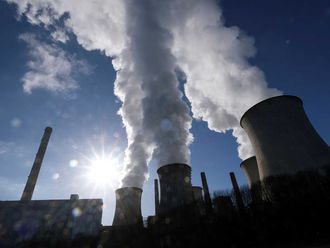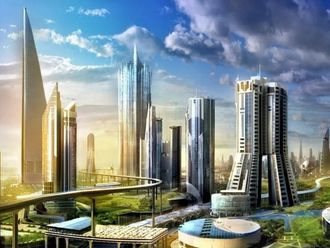Shanghai: Xiao Kun works in a polymer trading company and teaches Chinese in her spare time. As she explains to her students, the ‘hong bao', or a red purse filled with money, is the customary gift elders and company bosses hand over during the Chinese New Year.
Xiao's red purse, stuffed with her bonus cash, was an especially generous one this year.
As China breezes into its new year on February 14, the Asian markets are not quite keeping pace with the festive spirit.
The Shanghai Composite shed 1.9 per cent while Hong Kong's Hang Seng plummeted 3.3 per cent last week.
Greater China markets got caught up in the global rout triggered by alarming US employment data, the Dow Jones tumble and battered finances in southern European nations.
Coal, energy and metal shares led the losses as major energy producers, Jizhong Energy Resources Co, Hengyuan Coal Industry and Electricity Power, slumped more than 5 per cent.
Other state-owned giants, Aluminum Corp of China, Jiangxi Copper, Baoshan Iron & Steel Co, PetroChina and Sinopec fell 0.5 per cent to 2 per cent. China Shenhua Energy Co, the biggest coal producer, was down 3.15 per cent.
But Xiao Kun's employer, Li Wang, is not worried, although his company is a major international trader of copper, crude and polymer products. Like him, Chinese retail investors are taking the slide in commodity stocks in their stride. The China landscape, they feel, is strong; the fragility lies with the West.
Commodity traders and investors see the downslide as an annual cycle, when industrial activity in China shuts down for a week, starting February 14. They are also reconciling to the fact that commodity stocks will be under pressure this year as they were probably overvalued in the bull market in 2009.
Estimates
However, Credit Suisse, UBS AG and Barclays Capital have all predicted higher commodity prices this year on China's strength. The country will see an urbanisation rate of 60 per cent in the next 20 years. Its long term industrialisation plans and construction activities are well mapped out, making estimates easier.
China's imports of iron ore, copper and oil leapt to record highs in 2009. Crude oil imports are likely to go up by 9.1 per cent this year to 212 million tonnes. Steelmakers too will post a fast recovery due to strong automobile production growth in China. The country has already outpaced the US as the world's largest car market. Chinese steel demand is expected to grow by 5 per cent to 8 per cent.
Copper, used in power and construction, will have a predictable rise in demand in China with 80 per cent of the stimulus funds going into infrastructure spending, as the government ramps up transport, health and water systems.
China's refined copper demand may jump 14.8 per cent this year, while iron ore imports may rise 27 per cent to 800 million tons by 2012, up from the record last year, as steel consumption surges.
Sovereign wealth fund
Energy and raw material security is China's biggest concern now and state-owned companies have been scouring the world for cheap acquisitions. Chinese companies will continue to hunt for iron ore, coal, oil, copper and gold assets in 2010.
For the past year, a silent and significant player in the resources sector was the China Investment Corp (CIC), a $300 billion sovereign wealth fund. CIC is actively seeking investment opportunities in commodities and natural resources around the world. It spent a total of $10 billion in commodity-related companies in the second half of 2009.
In July, CIC bought 17.2 per cent of Teck Resources, Canada's largest base-metals producer, for $1.5 billion. It acquired an 11 per cent stake in a unit of Kaz-akhstan's state-run energy company in late September and purchased a 45 per cent of Nobel Oil Group of Russia.
In November it announced its biggest deal a $2.2 billion investment in American power producer AES Corp.
It is now in talks for direct investments in Brazil, the world's second-biggest iron-ore exporter, and Mexico, the second biggest silver producer.
The writer is a freelance business writer based in Shanghai.












